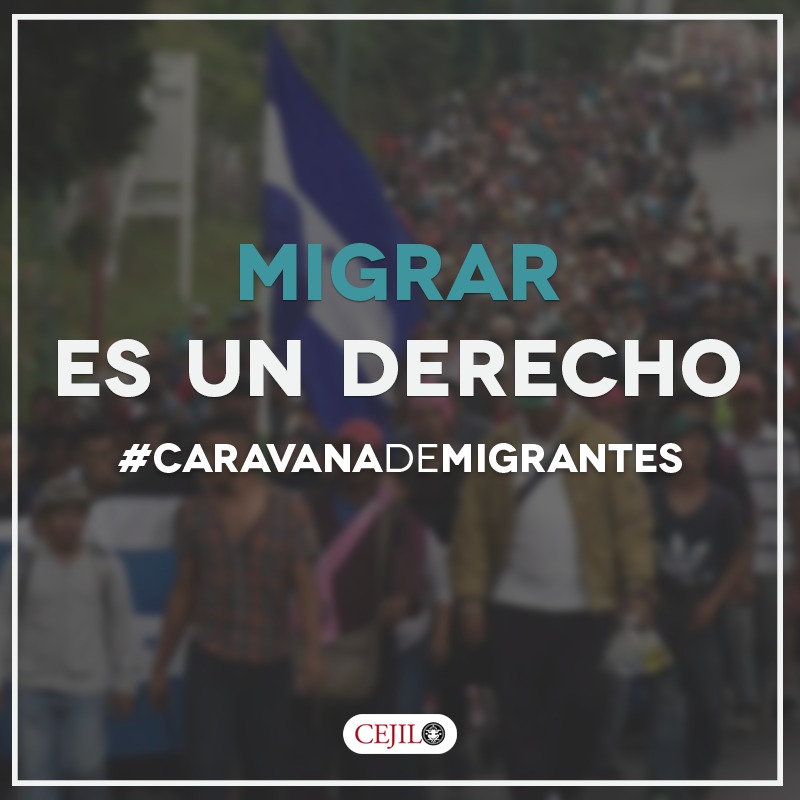






Washington, D.C. and San Jose, Costa Rica, D.C. October 24th, 2018.- On behalf of the Center for Justice and International Law (CEJIL), we express our concern with the treatment received by the people who have found themselves forced to migrate from Honduras, through a massive caravan which already entered Mexico and is about to reach the United States.
The information collected and publicized has led us to worry about the vulnerability and lack of protection of the rights of these individuals during transit to the country in the North. Although there is no official data, it is estimated that the number of members of the caravan ascends to some 7,000 people, between men, women, boys and girls. To date, according to the National Institute of Migration of Mexico, 640 people have solicited asylum in Mexico. Nevertheless, only 164 women, 104 children and elderly adults have received priority treatment.
Numerous media outlets take notice of the situation that migrants are facing, for example, having been assaulted by security forces in Guatemala and Mexico, and furthermore, on facing precarious conditions on their path, with no access to adequate nourishment, without access to adequate shelter and without medications to deal with their health problems resulting from the extensive walks.
It is important to remember that the caravan is the result of violence, repression, corruption and the impunity that plagues Honduras and other countries belonging to the North Triangle. To illustrate, Honduras tops the lists of the most unequal and violent countries in the world. Additionally, the country faces political instability that has worsened since November of 2017 when Juan Orlando Hernandez was reelected in elections that were seriously questioned but supported by the United States government.
Given this scenario, migrating to seek refuge or asylum is not a crime and the States have international obligations that must be respected and guaranteed to avoid migration, both in transit and in destination.
In the case of Honduras, the country raises serious concerns regarding the human rights of its population. It must demonstrate political willingness to construct a democracy which permits coexistence and guarantees rights without discrimination.
Transit countries like Guatemala and Mexico have an obligation to protect people in their respective territories, including refraining from responding with repression and taking all actions so that migrants can engage in transit in secure conditions without major obstacles.
On the other hand, individuals have the right to request international protection in another country outside of their country of origin. Mexico and the United States must respect these requests, in accordance with their international and national commitments. At the same time, they must respect the right not to be returned of those individuals confronting situations of vulnerability or risk, in other words, they must comply with the principle of non-refoulement.
CEJIL unites with the voices that demand the Mexican State respond in a timely manner to any request for refuge and asylum in accordance with international standards. Therefore, we condemn the demonstration of threats by US authorities that stigmatize the migrant population and increase their situation of precariousness and risk. This country must guarantee international protections to these individuals as required.
We urge the States in the region to develop coordinated and complementary alternatives, integral to rights and with an aim toward lasting solutions to the situation of forced migration. The Americas are experiencing a crisis of human mobility. Migration is a right, as is not migrating. Since these differing responsibilities exist, all the States should respond to and understand the structural causes which generate migration and assume the obligation of advancement in the strengthening of the state of rights to and full guarantee of human rights.
Help us continue this critical and urgent work with a donation!
DONATE NOW